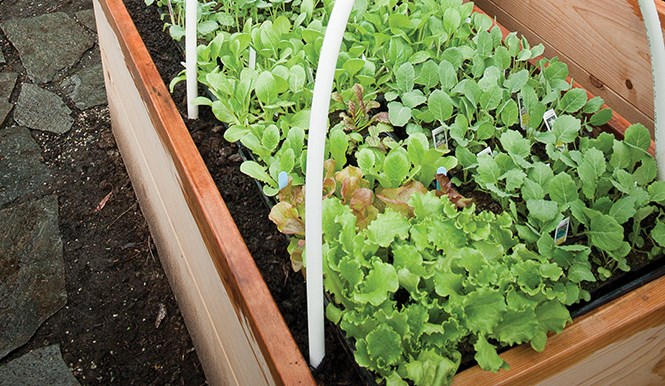Duck! I am literally ducking from the non-organic food scraps that might get thrown at me by the people about to read this week’s column. (Since they’re non-organic scraps, it wouldn’t be a waste, right?)
Wow. Are we really opening up a can of worms in an “urban farming” issue? Figuratively, yes.
I’d better start by saying I am not against urban agriculture but I do like to play devil’s advocate, think critically, and encourage discussion. There’s no discussion when we all agree. Agree?
There are many reasons why urban farming is great: it educates people about food, it brings the community together, it’s healthful, economical, environmentally friendly, and a good use of ‘unwanted’ space. But is it really?
I wrote about my issues with the “eat local” movement, and while urban farming makes it easier to participate, it may not be the most economical, healthy or even realistic.
The promotion of urban agriculture has resulted in more community gardens and job opportunities, but at the expense of taxpayer dollars. They don’t necessarily make money, but they save money since growing food is more economical than buying it.
On that note it kind of contradicts the whole “buy local” movement and the need to support our local farmers. And is it more environmentally friendly to drive around cities visiting each artisan for meat, cheese, and jam, or buy it all under one roof?
Luckily we have excellent farmers’ markets, which we all bike or walk to, right? I’m not a locavore or capitalist, just stirring the pot of compost.
Reserving ‘unwanted land’ (hard to think any even exists in Vancouver) for growing produce isn’t a bad thing, but maximizing valuable space needs to be considered.
Vertical farming or rooftop farming are two suggested urban-farming methods, but the upkeep cost of a vertical farm is outstanding — think of implementing a hydroponic system to start.
As for a rooftop garden, it also requires a pricey drainage system and it’s small scale, but so are the standard community gardens now.
The community gardens in downtown Vancouver are a solid reminder of why eating “real food” is important, but the pollution in densely populated areas inevitably affects the soil and water. So while growing food is rewarding, farming safety should be priority.
For example, I wouldn’t recommend eating mushrooms cultivated in urban areas since they are extremely porous and absorb all the nutrients and contaminants in their natural environment. Same goes for raspberries as well as a lot of fruits and vegetables.
The farm-to-table movement and urban farming go hand in hand but the truth is it’s impossible to feed all of BC locally. That’s why I don’t always give restaurants crap for buying fruits from California, unless they market themselves as an “eat local” restaurant.
The amount of food required to feed the population is more than the amount of available public land we have for farming, let alone urban farming. In an ideal world it would work in harmony, but until then it’s a fantasy… or more optimistically, a work in progress.
I’ve barely scratched the surface of a mother topic, but I’ve probably planted some controversial seeds.
Find out more about Mijune at FollowMeFoodie.com or follow her on Twitter and Instagram @followmefoodie.



